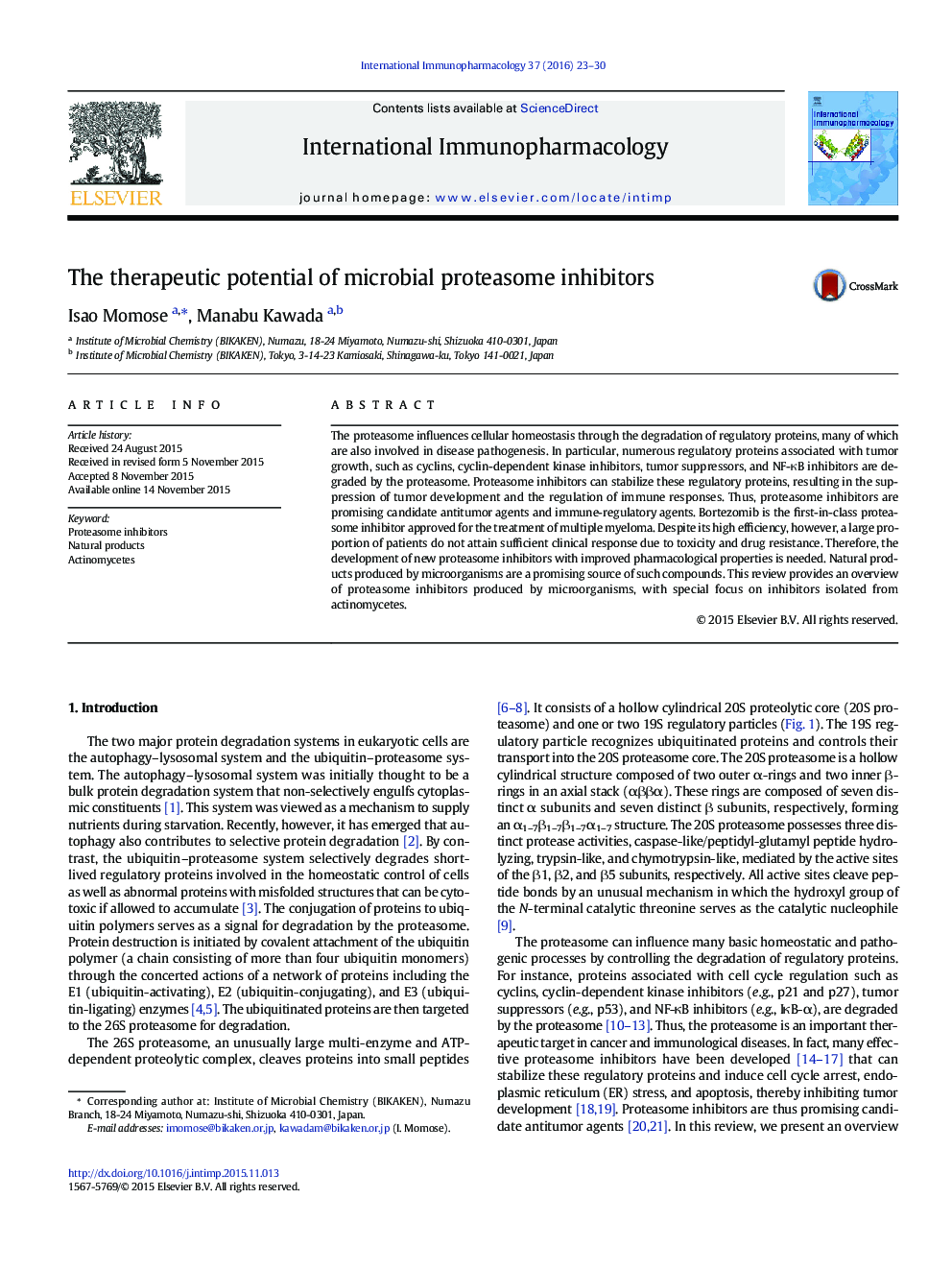| Article ID | Journal | Published Year | Pages | File Type |
|---|---|---|---|---|
| 5831951 | International Immunopharmacology | 2016 | 8 Pages |
Highlightâ¢The proteasome is a promising molecular target for antitumor drugs and immune-regulatory agents.â¢Natural microbial products are possible sources for pharmaceutical agents.â¢Actinomycetes are a valuable resource for drug discovery from microbial products.â¢Many proteasome inhibitors are isolated from culture broth of actinomycetes strains.
The proteasome influences cellular homeostasis through the degradation of regulatory proteins, many of which are also involved in disease pathogenesis. In particular, numerous regulatory proteins associated with tumor growth, such as cyclins, cyclin-dependent kinase inhibitors, tumor suppressors, and NF-κB inhibitors are degraded by the proteasome. Proteasome inhibitors can stabilize these regulatory proteins, resulting in the suppression of tumor development and the regulation of immune responses. Thus, proteasome inhibitors are promising candidate antitumor agents and immune-regulatory agents. Bortezomib is the first-in-class proteasome inhibitor approved for the treatment of multiple myeloma. Despite its high efficiency, however, a large proportion of patients do not attain sufficient clinical response due to toxicity and drug resistance. Therefore, the development of new proteasome inhibitors with improved pharmacological properties is needed. Natural products produced by microorganisms are a promising source of such compounds. This review provides an overview of proteasome inhibitors produced by microorganisms, with special focus on inhibitors isolated from actinomycetes.
Graphical abstractDownload high-res image (222KB)Download full-size image
